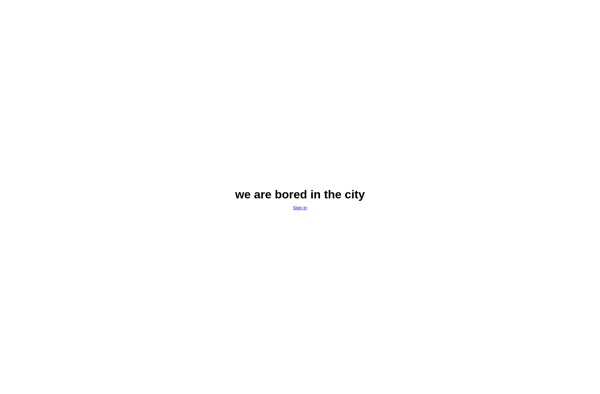Ournia
Ournia is an open-source knowledge management and collaboration platform. It allows teams to organize information, discuss ideas, and work on projects together in one place.
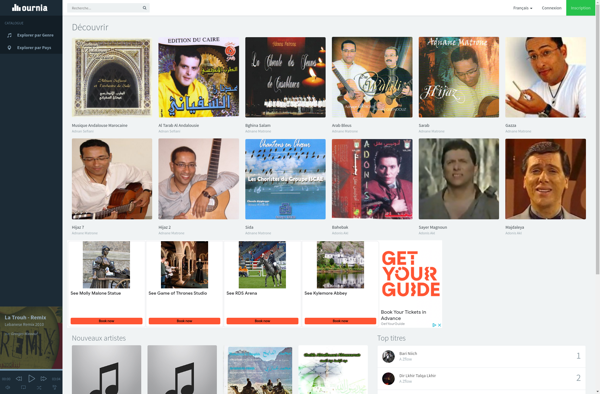
Ournia: Open-Source Knowledge Management & Collaboration Platform
Discover the power of collaborative work with Ournia, an open-source knowledge management and collaboration platform designed for teams.
What is Ournia?
Ournia is an open-source knowledge management and collaboration software designed for teams and organizations. It provides a centralized platform to collect, organize, share, and discuss information across the company.
Some key features of Ournia include:
- Wikis and documentation - Create wikis to document processes, policies, guidelines, etc. Foster a culture of knowledge sharing.
- Forums and discussions - Have focused discussions around ideas, brainstorm solutions to problems, get feedback.
- Flexible access controls - Control who can access, edit, comment on pages and discussions.
- Powerful search - Quickly find information across all wikis, forums, docs.
- Dashboards and notifications - Stay up-to-date with dashboard, email/in-app notifications.
- Integration with Azure AD - Manage users and access controls easily.
- Open-source & self-hosted - Customize it to your needs. Available on GitHub.
With its emphasis on collaboration and knowledge sharing, Ournia helps teams work more efficiently by making information easily accessible within one place. Its self-hosted and open-source nature also makes it a cost-effective alternative for small-to-medium businesses.
Ournia Features
Features
- Knowledge base to organize information
- Team collaboration tools
- Project management
- Document management
- Discussions and messaging
- User management and access controls
Pricing
- Open Source
Pros
Open source and free
Customizable platform
Good for managing institutional knowledge
Promotes collaboration
Cons
Steep learning curve
Limited integrations
Not suitable for large enterprises
Lacks some features of paid platforms
Official Links
Reviews & Ratings
Login to ReviewThe Best Ournia Alternatives
Top Office & Productivity and Knowledge Management and other similar apps like Ournia
Here are some alternatives to Ournia:
Suggest an alternative ❐Youtube Music
YouTube Music, a part of the broader YouTube ecosystem, is a music streaming service that brings together the best of official tracks, music videos, and user-generated content. With a vast and diverse library, YouTube Music offers users a personalized and immersive music experience. At the heart of YouTube Music's appeal...
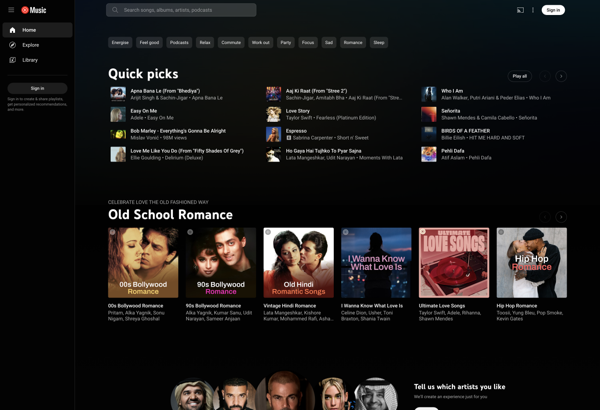
Spotify
Spotify stands as a leading music streaming platform, transforming the way people discover, enjoy, and share music. With an extensive library of songs, playlists, and podcasts, Spotify provides a dynamic and personalized music experience that caters to the diverse tastes of its users. At the core of Spotify's appeal is...
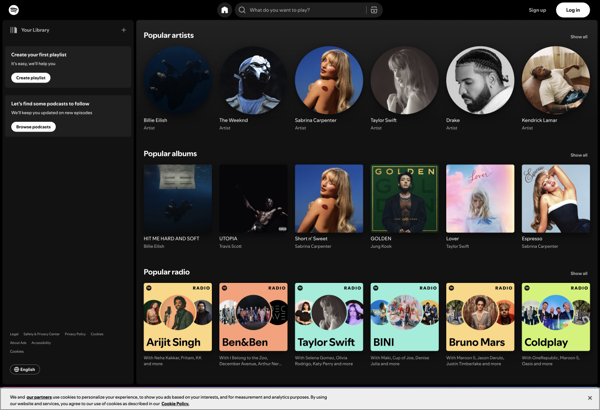
Deezer
Deezer is an on-demand music streaming service that launched in 2007. It gives users access to an extensive catalog of over 90 million tracks across a wide variety of genres. Some key features of Deezer include:Personalized recommendations - Users can discover new music tailored to their tastes through Deezer's recommendation...
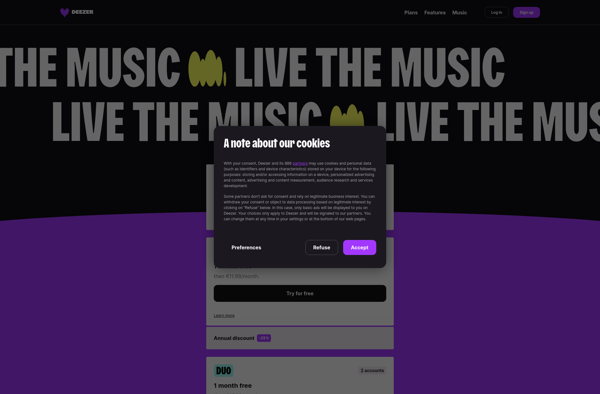
BlackHole Music Player
BlackHole Music Player is an open-source, minimalist music player application designed specifically for macOS. Developed by Existential Audio, it prioritizes an intuitive and uncluttered user interface to allow for easy music library management.Some key features of BlackHole Music Player include:Gapless playback - Songs transition seamlessly without gaps or pausesLast.fm scrobbling...

Last.fm
Last.fm is an influential music website known for its comprehensive music discovery features. It automatically keeps track of the songs you listen to across different devices and services, building a detailed profile of your musical taste and listening habits over time.With this data on your preferences, Last.fm provides personalized recommendations...
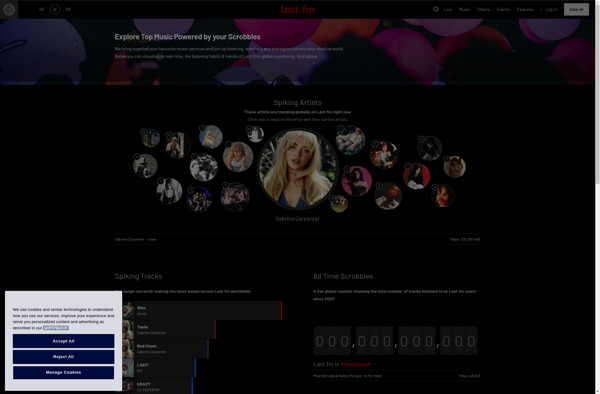
Pandora
Pandora is an online music streaming service that allows users to create and customize their own personalized radio stations. Launched in 2000, Pandora utilizes proprietary algorithms and data about musical characteristics to recommend and play songs that users are likely to enjoy.The service works by having users enter an artist...
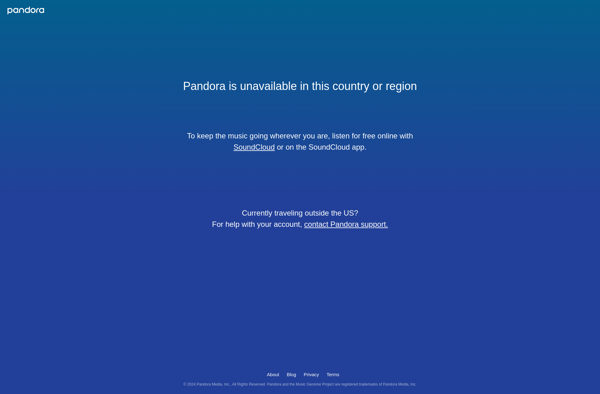
Jango
Jango is a leading open source NoSQL object database system designed for modern web application development.Some key features of Jango include:Schema-less, document-oriented structure for optimized flexibility and scalability.Distributed architecture easily scales across multiple servers to handle large data volumes.Built-in sharding and replication for high availability.Rich query functionality (including indexing, map/reduce)...
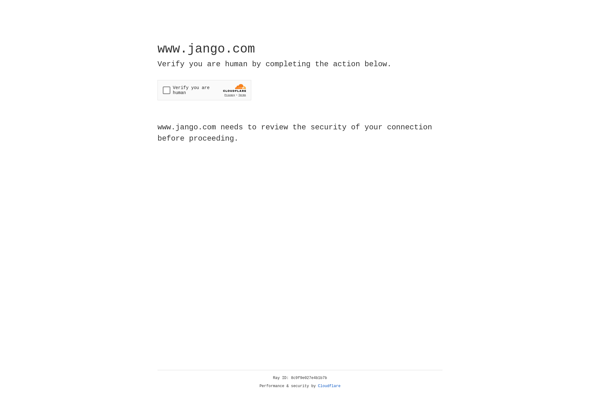
SoundCloud
SoundCloud is an online audio distribution platform and music sharing website that enables its users to upload, promote, and share audio. Launched in 2007 by Alexander Ljung and Eric Wahlforss, SoundCloud has grown to become one of the largest music streaming platforms on the web, with over 250 million tracks...
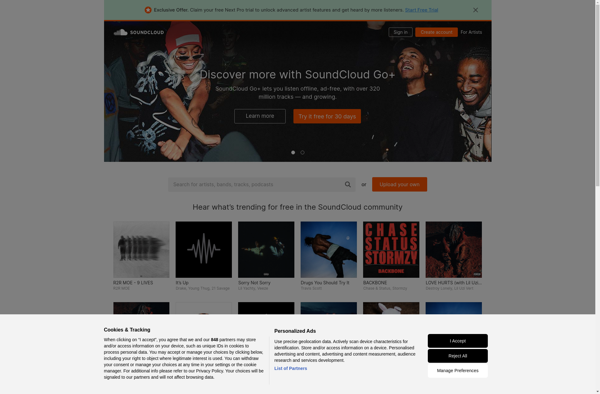
Discogs
Discogs is an online crowdsourced database of information about audio recordings, including vinyl records, cassettes, CDs, and more. It was founded in 2000 as a personal music collection cataloging and marketplace tool, but has since grown into one of the largest and most comprehensive music databases on the web.Some key...
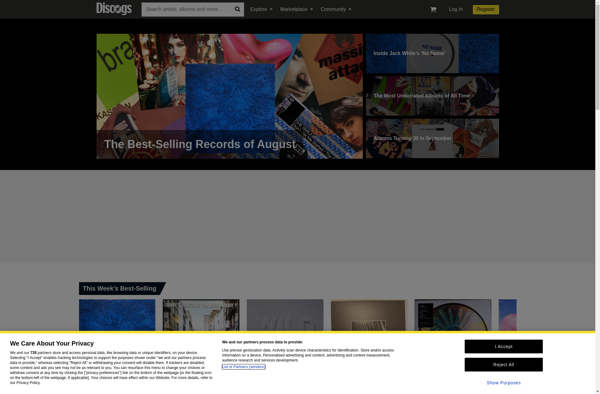
Audius Music
Audius is a decentralized music platform built on blockchain technology. It allows anyone to share, stream, and monetize audio content without intermediaries. Some key things to know about Audius:It's designed to give more control, transparency and compensation to artists. Artists can upload their music directly and get paid directly by...
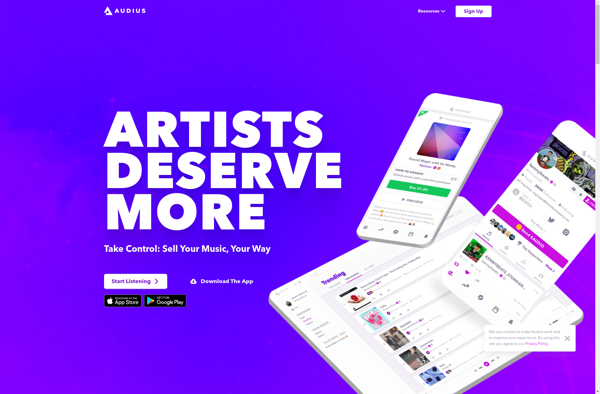
Jamendo
Jamendo is an open music platform founded in 2005 that allows artists to share their music under Creative Commons licenses. This allows users to freely stream and download the music legally. Jamendo does not pay royalties to the artists, but instead helps them gain exposure and new fans.Some key facts...
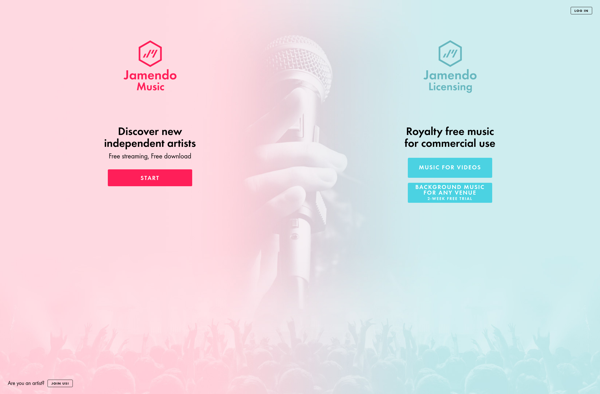
Libre.fm
Libre.fm is an open-source, ad-free alternative to Last.fm that allows users to track their music listening habits across different devices and services. It builds detailed profiles of users' musical tastes by recording what they listen to from streaming services, media players, podcasts and more.Some key features of Libre.fm include:Scrobbling -...
